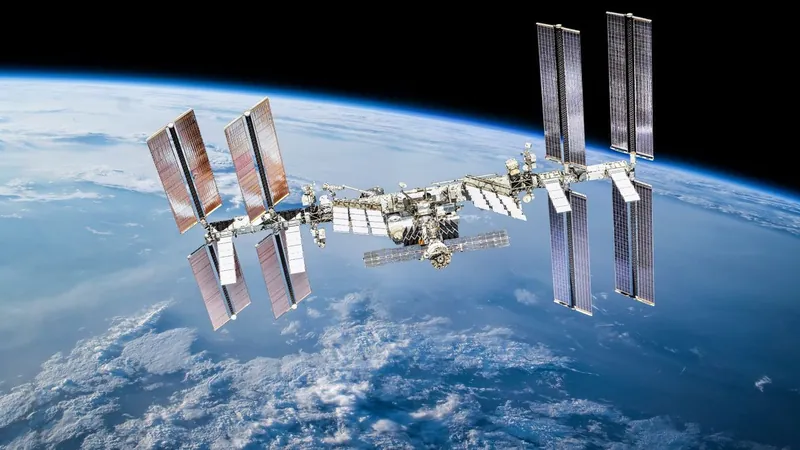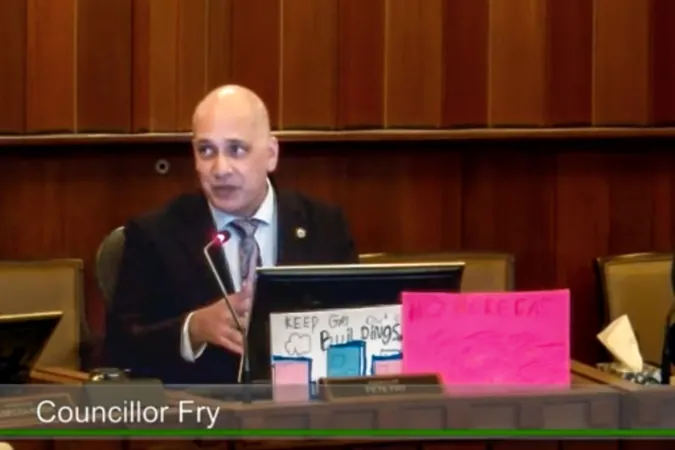
Astronauts Stunned by Mysterious 'Toxic' Smell Emanating from Russian Spacecraft at ISS
2024-11-27
Author: Noah
Incident Overview
In a baffling turn of events aboard the International Space Station (ISS), astronauts have encountered an unsettling and potentially hazardous odor following the recent arrival of a Russian cargo spacecraft. Reports highlight that the peculiar smell, reminiscent of spray paint, prompted immediate action from the crew.
Discovery of the Odor
After the Russian Progress spacecraft docked with the Poisk module on November 23, Russian cosmonauts detected the strange scent upon opening the hatch. Alarmed, they swiftly sealed off the hatch and donned protective gear. NASA shared on X (formerly Twitter) that this unexpected odor was accompanied by the sight of small droplets inside the spacecraft, leading to a precautionary closure of the Poisk hatch to isolate the rest of the ISS from possible contamination.
Response to the Situation
In the wake of this incident, air scrubbers were deployed to cleanse the station's atmosphere. By Sunday, engineers in mission control confirmed that the air quality had returned to normal levels, assuring that the crew's safety was not compromised. NASA stated that operations would continue as planned, with the crew working towards reopening the hatch between the Poisk and Progress modules shortly thereafter.
Source of the Odor
While preliminary assessments have deemed the odor to originate from "outgassing from materials" inside the Progress's pressurized cargo section, the definitive source and potential hazardous effects of the smell remain unclear. Some reports, including those from Russian Space Web, have labeled the released fumes as "toxic," raising eyebrows about safety protocols in such a delicate environment.
Broader Safety Concerns
Adding to the tension, this latest incident isn't an isolated case for the Poisk module. A recent NASA report detailed a concerning five-year leak that could escalate into catastrophic failure for the ISS, as warned by Bob Cabana, chair of NASA's ISS Advisory Committee. While Russian officials sought to downplay the gravity of the situation, little action has been taken to rectify the leaks, leaving astronauts in a precarious position.
Future of the ISS
With the ISS's operational timeline extending only until 2030 before its planned decommissioning and deorbiting by SpaceX, these incidents underscore the urgent need for vigilance and maintenance aboard the aging space station. As the world watches, the safety and wellbeing of the astronauts aboard the ISS remain critically important amidst these unfolding events.









 Brasil (PT)
Brasil (PT)
 Canada (EN)
Canada (EN)
 Chile (ES)
Chile (ES)
 España (ES)
España (ES)
 France (FR)
France (FR)
 Hong Kong (EN)
Hong Kong (EN)
 Italia (IT)
Italia (IT)
 日本 (JA)
日本 (JA)
 Magyarország (HU)
Magyarország (HU)
 Norge (NO)
Norge (NO)
 Polska (PL)
Polska (PL)
 Schweiz (DE)
Schweiz (DE)
 Singapore (EN)
Singapore (EN)
 Sverige (SV)
Sverige (SV)
 Suomi (FI)
Suomi (FI)
 Türkiye (TR)
Türkiye (TR)